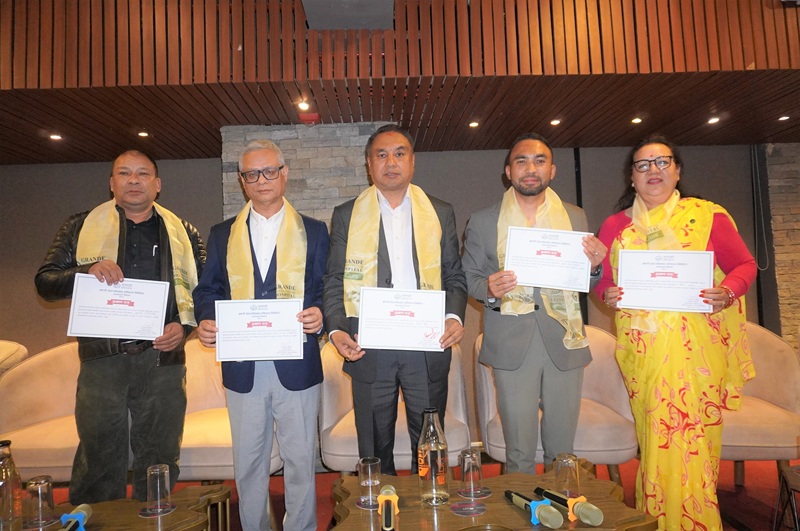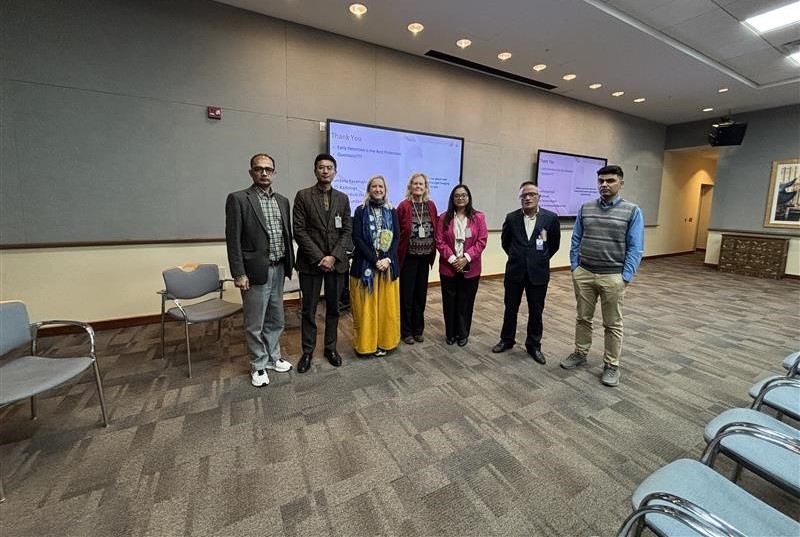“Digital Nepal Framework: Bridging Gaps for a Transformative Future”
25 August 2024, Kathmandu
“Chiranjibi Adhikari and Suman Ranjit Lead Digital Nepal Framework Analysis for a Digitally Inclusive Future”
Digital Nepal Framework Bridging Gaps
Nepal’s digital future is under the spotlight as the Digital Nepal Framework undergoes a comprehensive analysis aimed at addressing existing gaps and driving the nation towards a digitally inclusive society.
This initiative is being spearheaded by cybersecurity expert and CAN Federation General Secretary, Chiranjibi Adhikari, alongside CAN Federation FinTech Expert Member, Suman Ranjit.
The project focuses on assessing the current state of the Digital Nepal Framework, identifying challenges, and formulating strategic recommendations to enhance the nation’s digital landscape.
Understanding the Digital Nepal Framework
The first step in this analysis is revisiting the core objectives of the Digital Nepal Framework. Adhikari and Ranjit’s team is thoroughly examining the framework’s foundational components, which include infrastructure, services, innovation, and human capital. This ensures that future strategies are aligned with Nepal’s digital goals and grounded in a solid understanding of the framework’s original vision.
Data-Driven Insights for Accurate Assessment
A crucial phase of the analysis involves gathering current data from government reports, independent studies, and surveys. This data-driven approach is essential for benchmarking progress and identifying areas that require further attention. The goal is to establish a clear and comprehensive picture of the advancements made under the Digital Nepal initiative and the gaps that still exist.
Mapping Objectives Against Achievements
A key part of the analysis is comparing the framework’s original objectives with its current achievements. By mapping these elements, the team can highlight both successes and areas needing improvement. This comparison allows Adhikari and Ranjit to formulate effective solutions that align with the framework’s initial intent, ensuring better outcomes as the initiative moves forward.
Evaluating Key Performance Indicators
To measure the effectiveness of the Digital Nepal Framework, the analysis focuses on evaluating key performance indicators (KPIs). This detailed assessment helps identify significant deviations from the set targets and guides the strategic interventions needed to address them. Ensuring that these KPIs align with the long-term vision of Digital Nepal is crucial for achieving sustained digital growth.
Overcoming Technological, Financial, and Regulatory Challenges
The analysis also delves into the various challenges hindering progress, whether they are technological, financial, or regulatory. By understanding these barriers, Adhikari and Ranjit can develop targeted strategies to overcome them, paving the way for smoother implementation of digital initiatives across the country.
Documenting Progress and Uncovering Opportunities
Documenting the strengths and weaknesses of the framework is another critical component of the analysis. This documentation provides a realistic perspective on the current status of Digital Nepal and lays the groundwork for identifying new opportunities for improvement. These opportunities, whether through policy changes, increased funding, or new partnerships, are key to advancing the nation’s digital transformation.
Strategic Recommendations and Implementation Plan
In the final stages of the analysis, Adhikari and Ranjit will craft actionable recommendations and develop a high-level implementation plan. These recommendations will focus on closing the identified gaps and ensuring that resources are allocated effectively. A clear roadmap, with timelines, responsible parties, and key milestones, will guide stakeholders in translating these recommendations into tangible results.
Collaboration is Key
The team emphasizes the importance of collaboration in achieving Digital Nepal’s goals. With support from various stakeholders, including government bodies, private sector partners, and civil society, Nepal can overcome existing challenges and create a digitally inclusive future for all.
Conclusion
As Nepal embarks on this journey of digital transformation, the analysis led by Chiranjibi Adhikari and Suman Ranjit provides a critical roadmap for success. By bridging gaps and fostering collaboration, the nation is well-positioned to achieve its vision of a digitally empowered society.








